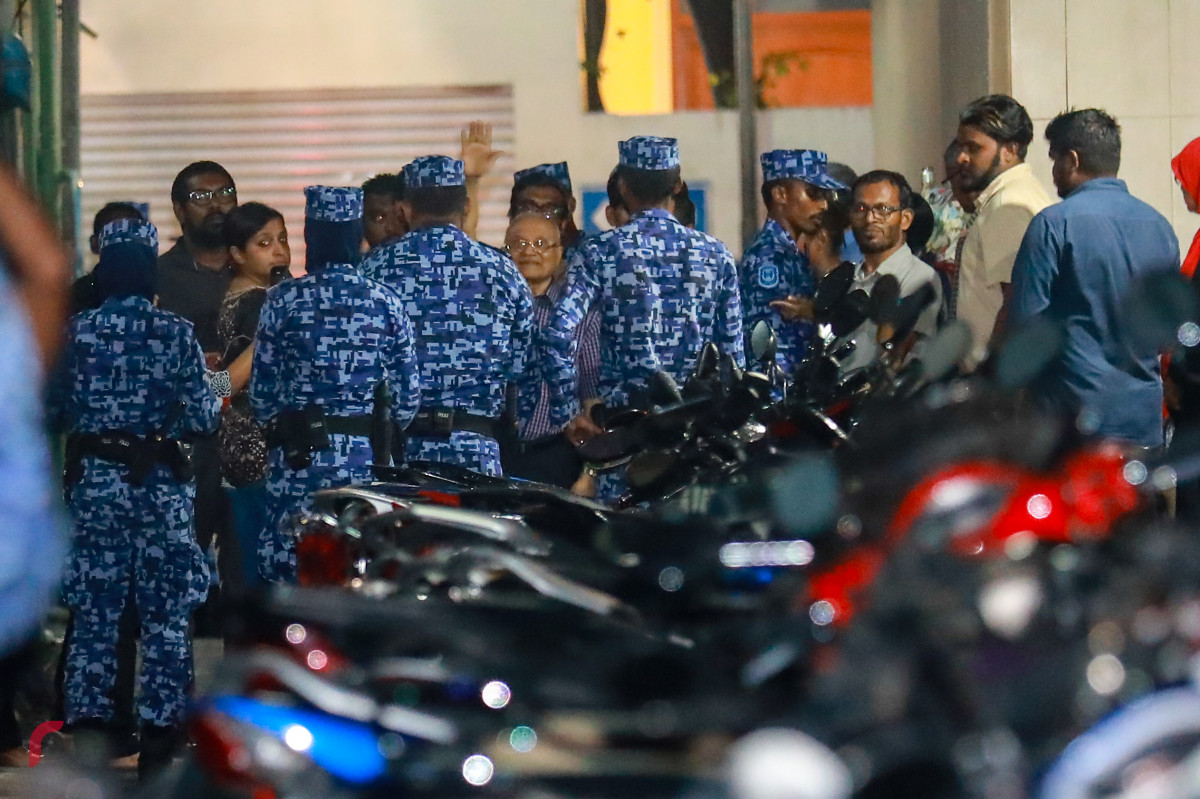The 45-day state of emergency was lifted on Thursday, only hours before expiration


Former President Maumoon Abdul Gayoom being taken into police custody, shortly after the declaration of state of emergency on 5th February
Welcoming the Maldives government’s decision to lift the state of emergency on Thursday, India has called to “implement the Supreme Court’s full bench order on 1 February 2018”.
A statement issued by India’s Ministry of External Affairs noted that “while this is one step towards addressing the issues related to the prevailing political situation in [Maldives], a number of concerns expressed by the international community remain to be addressed”.
It further called on the government to “restore all Articles of the Constitution, to allow the Supreme Court and other branches of the judiciary to operate in full independence, to promote and support the free and proper functioning of Parliament, to implement the Supreme Court’s full bench order of 1 February 2018 and to support a genuine political dialogue with all opposition parties”.
The 45-day nationwide state of emergency was lifted on Thursday, with officials from the government saying that it was lifted “after security forces assured the president that they could maintain stability in the nation without its authority”.
Supreme Court had, on 1st February, issued a ruling ordering the release of nine high-profile political prisoners, and reinstating the 12 dismissed lawmakers. However, President Abdulla Yameen refused to implement the order, describing it as a ‘judicial coup’. He then declared a 15-day state of emergency, extending it on the 20th, through a vote held without the constitutionally required quorum. The validity of both the initial declaration and extension has been questioned by both the local and international community.
Authorities have since arrested former President Maumoon Abdul Gayoom over allegations of conspiring to overthrow the government. In addition, Chief Justice Abdulla Saeed and Justice Ali Hameed were arrested as well, and the remaining three justices are being used to issue various rulings.
Criminal Court has since ordered to keep the three in remand, for the remainder of the investigations and trials against them.